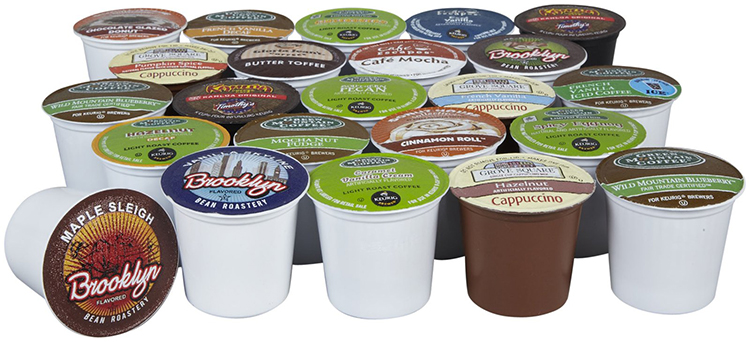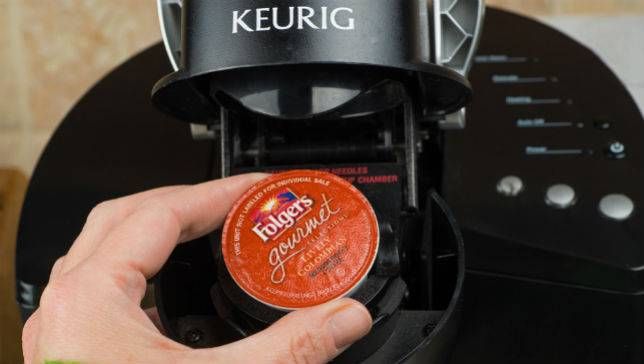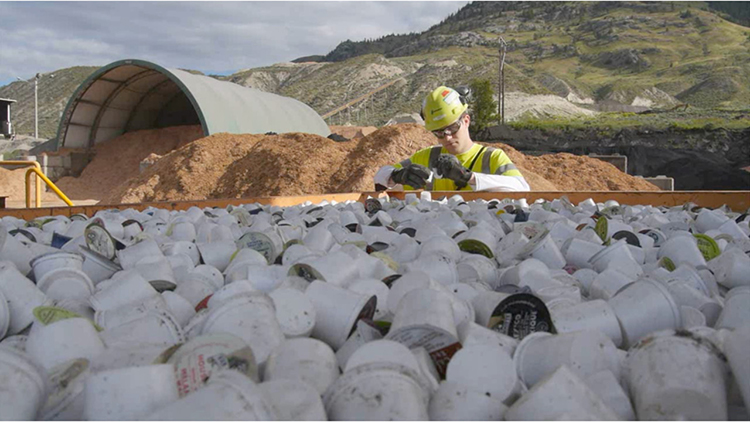Keurig K-Cups Could Soon Be a Thing of the Past

The Keurig K-Cup is showing signs of decline as lazy America’s favorite way to brew coffee. Considering the environmental costs associated with a coffee brewing system that relies on the easy disposability of its delivery system to serve up the convenience that seems to be its only real consumer benefit, this decline in sales is being celebrated by environmentalists throughout the land.
The fact that there are real health issues associated with K-Cup packaging seems a secondary consideration to the fact that K-Cup coffee just doesn’t taste as good as even regular drip coffee.
A Brief Primer on the Keurig K-Cup
For those of you who have somehow missed the meteoric rise of the K-Cup, here’s a brief primer. K-Cup coffee (and tea, cider, hot cocoa) brewing systems, of which Green Mountain Coffee’s Keurig system is the most popular, use little pre-measured cups full of coffee grounds to brew individual single-serve coffee.
The system is simple. You put water in the reservoir and a little K-Cup in the brewing basket, the machine punctures the aluminum lid of the K-Cup and sprays in heated water, coffee drips out into your cup. When you’re ready for a second cup, you just throw the used K-Cup in the trash.
It’s easy, its convenient, and the results are considerably better than what you can get with powdered instant coffee.
Environmental Concerns With K-Cups
The fact that K-Cups are born to be discarded in the landfill is troubling. The fact that they are inherently un-recyclable, no matter if users were willing to rinse them out prior to discarding, is even more troubling.
In 2013 alone, enough K-Cups where used and discarded to circle the globe at the equator more than ten times. That is a tremendous amount of wasted packaging.
This environmental failing in the name of convenience becomes extremely pronounced when you compare the waste generated by K-Cups with the nearly one-hundred percent compostable waste generated by nearly every other form of coffee brewing.
Health Concerns With Keurig’s K-Cups
In addition to the environmental concerns associated with the waste produced by use of the system, there are some very real health concerns with the packaging, as well.

Though Green Mountain has committed to evaluating the materials that go into its K-Cups, making them more environmentally friendly by 2020, the plastic used in the cups currently is a proprietary blend that may contain any one of a number of problematic components, like the nerve toxin and possible carcinogen polystyrene.
Need Convenience? There Are Quick & Easy Ways to Brew Coffee
Pour-over single cup technology has existed almost as long as coffee has been a beverage. A glass, metal, or even plastic single cup filter holder and tea kettle are the only pieces of “special equipment” you need to brew an exceptional cup of coffee in a few seconds longer than it takes to make a K-Cup.
You can compost or discard the filter and grounds afterward, assured that it will biodegrade. And you can drink your coffee in peace, assured that you’re not actively contributing to polluting the planet.
[Photos Via: Soap; For Construction Pros; Mnn]

